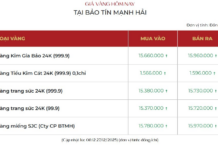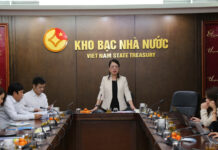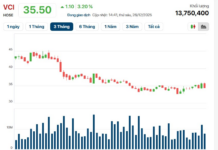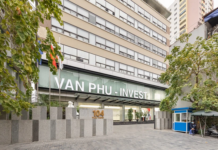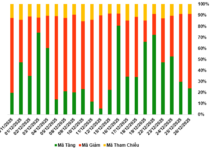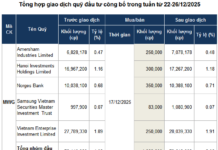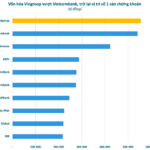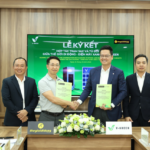Ambitious Goal: Capturing 50% Market Share
With a target of 1.5 million units, equivalent to approximately 50% of the national motorcycle market share, including both gasoline and electric bikes, VinFast sets a bold objective. This challenging goal has garnered unanimous support from over 600 distributors at the VinFast Electric Motorcycle Distributor Conference Q3/2025.

Over 600 VinFast electric motorcycle distributors nationwide have unified to set a 2026 sales target of 1.5 million units.
This ambitious goal is backed by VinFast’s unprecedented support policies, incentivizing consumers to embrace the green transition. Customers purchasing VinFast electric motorcycles during this period receive a 10% discount on the bike’s price and a full waiver of registration fees. Additionally, buyers can opt for an 80-90% loan, with only a 10% down payment required for personal use or full financing for commercial use on the Xanh SM Platform.
To ensure a seamless transition to electric motorcycles, VinFast has developed a battery-swapping model and is establishing a nationwide network of battery-swapping stations, four times larger than the current gas station network, expected to be completed by late 2026. With 150,000 stations across the country, refueling electric motorcycles will be faster, more convenient, and cost-effective than traditional gas stations. Furthermore, all VinFast electric motorcycle owners enjoy free charging at V-Green public charging stations until May 31, 2027.

Distributors visited the VinFast electric motorcycle production facility in Hai Phong on September 15th.
VinFast offers an industry-leading warranty, with 6 years for the motorcycle and 8 years for the battery, double that of some popular gasoline motorcycle brands.
A Leading Motorcycle Brand in Vietnam
VinFast’s comprehensive support for electric motorcycles has received positive feedback from consumers and sparked a nationwide shift in business models among dealers and distributors.
As of September 2025, VinFast boasts a network of 600 sales points and 400 service centers, becoming one of the two largest motorcycle brands in Vietnam in terms of coverage. The company plans to further expand its distributor and service network, making it easier for customers to access and own VinFast electric motorcycles.

VinFast is committed to supporting consumers and partners in achieving their goals and contributing to Vietnam’s green transition.
In response to the distributors’ commitment, Mr. Hoàng Hà, Deputy General Director of Sales and Marketing for VinFast Electric Motorcycles, stated, “We pledge to stand by our customers and partners throughout the transition to electric vehicles, ensuring we meet our targets and contribute to the nation’s green initiatives. With our diverse product range, rapidly expanding network, and flexible solutions, we are confident in achieving our 2026 sales goal of 1.5 million electric motorcycles.”
The VinFast Electric Motorcycle Distributor Conference Q3/2025, the largest to date with 600 attendees, highlights the significant growth of VinFast’s electric motorcycle business. In the first nine months of the year, VinFast emerged as the second-largest motorcycle brand in Vietnam, driven by the growing consumer shift from gasoline to electric motorcycles.
How Much Did Billionaire Pham Nhat Vuong’s Wealth Surge as VIC Overtakes VCB to Become Vietnam’s Most Valuable Stock?
Billionaire Pham Nhat Vuong’s wealth surged by $424 million as Vingroup’s stock (VIC) overtook Vietcombank (VCB) to become the largest capitalized stock on Vietnam’s stock market.
Sustainable Development: The New Competitive Edge for Vietnamese Businesses
At the “Green for Growth: How Sustainability Unlocks New Opportunities” seminar, co-hosted by EuroCham Vietnam, UOB Vietnam, and partners in August 2025, Mr. Jason Yang, Director of Sustainable Development at UOB Vietnam, shared strategic insights on the role of sustainability in Vietnam’s next phase of economic growth.
VinFast Poised to Dominate the World’s Largest Motorcycle Market with Electric Bikes, Challenging Industry Giants
VinFast, a Vietnamese automotive manufacturer, has boldly ventured into the global market by selecting a country 18 hours away by flight as its inaugural destination for electric motorcycle exports. This strategic move marks a significant milestone, showcasing VinFast’s ambition to expand its presence in the international electric vehicle arena.









